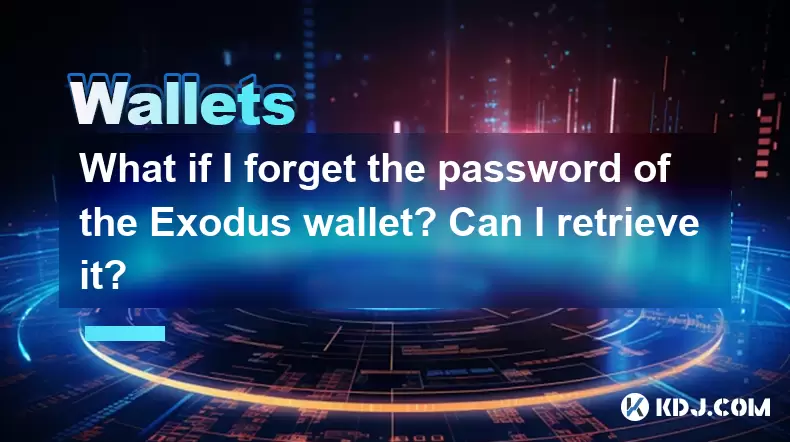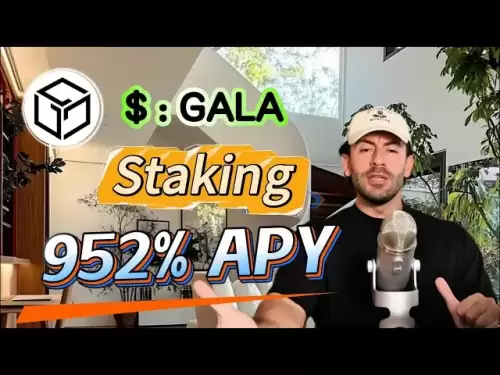-
 Bitcoin
Bitcoin $114500
-0.31% -
 Ethereum
Ethereum $3648
1.11% -
 XRP
XRP $3.033
-0.27% -
 Tether USDt
Tether USDt $0.9999
-0.01% -
 BNB
BNB $758.5
-0.32% -
 Solana
Solana $167.5
1.48% -
 USDC
USDC $0.9998
-0.02% -
 TRON
TRON $0.3331
0.74% -
 Dogecoin
Dogecoin $0.2039
0.25% -
 Cardano
Cardano $0.7419
-0.46% -
 Hyperliquid
Hyperliquid $39.21
2.66% -
 Stellar
Stellar $0.4049
-1.95% -
 Sui
Sui $3.483
-0.56% -
 Bitcoin Cash
Bitcoin Cash $570.8
2.89% -
 Chainlink
Chainlink $16.67
-0.57% -
 Hedera
Hedera $0.2470
-1.57% -
 Ethena USDe
Ethena USDe $1.001
0.00% -
 Avalanche
Avalanche $22.36
1.52% -
 Litecoin
Litecoin $123.4
4.35% -
 UNUS SED LEO
UNUS SED LEO $8.989
0.09% -
 Toncoin
Toncoin $3.324
-2.40% -
 Shiba Inu
Shiba Inu $0.00001219
-1.30% -
 Uniswap
Uniswap $9.811
2.54% -
 Polkadot
Polkadot $3.662
-0.07% -
 Monero
Monero $295.5
-3.85% -
 Dai
Dai $1.000
0.01% -
 Bitget Token
Bitget Token $4.345
0.24% -
 Cronos
Cronos $0.1380
0.95% -
 Pepe
Pepe $0.00001044
-1.14% -
 Ethena
Ethena $0.5981
-4.24%
What if I forget the password of the Exodus wallet? Can I retrieve it?
If you forget your Exodus wallet password, use your 12-word recovery phrase to restore it; keep this phrase safe as it's crucial for accessing your funds.
May 11, 2025 at 01:22 am

Forgetting the password to your Exodus wallet can be a stressful experience, but there are steps you can take to regain access to your funds. Exodus does not store your password or recovery phrase on their servers, which means that you are responsible for keeping this information safe. However, there are methods you can use to recover your wallet if you've lost your password.
Understanding Exodus Wallet Security
Exodus wallet uses a 12-word recovery phrase, also known as a mnemonic seed, to restore your wallet in case you lose your password. This recovery phrase is generated when you first set up your wallet and is crucial for accessing your funds if you forget your password. It's essential to keep this phrase in a safe place, as anyone with access to it can control your wallet.
Steps to Recover Your Exodus Wallet
If you've forgotten your password, the first step is to use your recovery phrase to restore your wallet. Here’s how you can do it:
- Open the Exodus wallet application on your device.
- Click on the 'Wallet' tab at the top of the screen.
- Select 'Tools' from the left-hand menu.
- Choose 'Restore from Backup'.
- Enter your 12-word recovery phrase in the correct order. Make sure there are no typos or extra spaces.
- Follow the on-screen prompts to complete the restoration process.
Once you've restored your wallet, you'll need to set a new password. Make sure to choose a strong password that you can remember or store securely.
What If I Lost Both My Password and Recovery Phrase?
If you've lost both your password and your recovery phrase, recovering your funds becomes significantly more challenging. In this scenario, you will not be able to access your wallet through standard means. However, there are a few options you might consider:
- Check for backups: If you have backups of your computer or device where you initially set up the wallet, you might find the recovery phrase stored there.
- Use third-party recovery services: Some specialized services claim to help recover lost cryptocurrency. Be cautious, as these services can be expensive and not always successful. Always research thoroughly and understand the risks before proceeding.
- Contact Exodus Support: While Exodus cannot retrieve your password or recovery phrase, they may offer guidance or point you to resources that could help.
Preventing Future Losses
To avoid the situation of losing access to your wallet again, consider the following best practices:
- Write down your recovery phrase and store it in a secure location, such as a safe or a secure note-taking app.
- Use a password manager to generate and store strong, unique passwords for your wallet.
- Regularly back up your wallet to an external drive or cloud storage, ensuring you have multiple copies of your recovery phrase and wallet data.
- Enable two-factor authentication (2FA) if your wallet supports it, adding an extra layer of security to your account.
Common Mistakes to Avoid
When dealing with cryptocurrency wallets, certain common mistakes can lead to losing access to your funds. Here are some to watch out for:
- Storing your recovery phrase digitally: While convenient, storing your recovery phrase on a computer or online can expose it to hackers. Always use physical storage methods.
- Sharing your recovery phrase: Never share your recovery phrase with anyone, including customer support or friends. This is the key to your funds.
- Using weak passwords: A weak password can be easily guessed or cracked. Always use a strong, unique password for your wallet.
- Not testing your recovery process: Periodically, you should test your recovery process to ensure you can restore your wallet if needed. This practice can save you from future headaches.
Frequently Asked Questions
Q: Can Exodus reset my password for me?
A: No, Exodus cannot reset your password. You are the only one with access to your password and recovery phrase. If you forget your password, you must use your recovery phrase to restore your wallet and set a new password.
Q: Is it safe to use third-party recovery services?
A: Using third-party recovery services can be risky. These services often require you to share sensitive information, and there's no guarantee of success. Always research thoroughly and understand the potential risks before using such services.
Q: How often should I back up my Exodus wallet?
A: It's a good practice to back up your Exodus wallet every time you make significant changes, such as adding new cryptocurrencies or after a major transaction. Regular backups ensure you have the most up-to-date information in case you need to restore your wallet.
Q: Can I use the same recovery phrase for multiple wallets?
A: While it's technically possible to use the same recovery phrase for multiple wallets, it's not recommended. Using the same phrase increases the risk of losing access to all your wallets if the phrase is compromised. It's safer to use a unique recovery phrase for each wallet.
Disclaimer:info@kdj.com
The information provided is not trading advice. kdj.com does not assume any responsibility for any investments made based on the information provided in this article. Cryptocurrencies are highly volatile and it is highly recommended that you invest with caution after thorough research!
If you believe that the content used on this website infringes your copyright, please contact us immediately (info@kdj.com) and we will delete it promptly.
- Uniswap Valuation Under the Microscope: Bitwise CIO's Perspective
- 2025-08-05 23:10:12
- Coinbase's $2 Billion Convertible Notes: A Bold Move or Risky Bet?
- 2025-08-05 23:10:12
- Inveniam, MANTRA, and Real-World Assets: Forging a New DeFi Frontier
- 2025-08-05 22:30:12
- Cyprus Investor's $448K Crypto Loss: An Email Hack Wake-Up Call for Crypto Exchanges
- 2025-08-05 22:30:12
- Solana Memecoin Mania: Trader Profit Secrets Revealed!
- 2025-08-05 20:30:13
- POL Price Rebound: Will Consolidation Lead to a Breakout?
- 2025-08-05 20:30:13
Related knowledge

How to add TRC20 token to Trust Wallet?
Aug 04,2025 at 11:35am
Understanding TRC20 and Trust Wallet CompatibilityTrust Wallet is a widely used cryptocurrency wallet that supports multiple blockchain networks, incl...

What is a watch-only wallet in Trust Wallet?
Aug 02,2025 at 03:36am
Understanding the Concept of a Watch-Only WalletA watch-only wallet in Trust Wallet allows users to monitor a cryptocurrency address without having ac...

Why can't I connect my Trust Wallet to a DApp?
Aug 04,2025 at 12:00pm
Understanding DApp Connectivity and Trust WalletConnecting your Trust Wallet to a decentralized application (DApp) is a common process in the cryptocu...

How to fix a stuck pending transaction in Trust Wallet?
Aug 03,2025 at 06:14am
Understanding Why Transactions Get Stuck in Trust WalletWhen using Trust Wallet, users may occasionally encounter a pending transaction that appears t...

What is a multi-coin wallet in Trust Wallet?
Aug 03,2025 at 04:43am
Understanding Multi-Coin Wallets in Trust WalletA multi-coin wallet in Trust Wallet refers to a digital wallet that supports multiple cryptocurrencies...

How to switch between networks in Trust Wallet?
Aug 02,2025 at 12:36pm
Understanding Network Switching in Trust WalletSwitching between networks in Trust Wallet allows users to manage assets across different blockchains s...

How to add TRC20 token to Trust Wallet?
Aug 04,2025 at 11:35am
Understanding TRC20 and Trust Wallet CompatibilityTrust Wallet is a widely used cryptocurrency wallet that supports multiple blockchain networks, incl...

What is a watch-only wallet in Trust Wallet?
Aug 02,2025 at 03:36am
Understanding the Concept of a Watch-Only WalletA watch-only wallet in Trust Wallet allows users to monitor a cryptocurrency address without having ac...

Why can't I connect my Trust Wallet to a DApp?
Aug 04,2025 at 12:00pm
Understanding DApp Connectivity and Trust WalletConnecting your Trust Wallet to a decentralized application (DApp) is a common process in the cryptocu...

How to fix a stuck pending transaction in Trust Wallet?
Aug 03,2025 at 06:14am
Understanding Why Transactions Get Stuck in Trust WalletWhen using Trust Wallet, users may occasionally encounter a pending transaction that appears t...

What is a multi-coin wallet in Trust Wallet?
Aug 03,2025 at 04:43am
Understanding Multi-Coin Wallets in Trust WalletA multi-coin wallet in Trust Wallet refers to a digital wallet that supports multiple cryptocurrencies...

How to switch between networks in Trust Wallet?
Aug 02,2025 at 12:36pm
Understanding Network Switching in Trust WalletSwitching between networks in Trust Wallet allows users to manage assets across different blockchains s...
See all articles

























































































